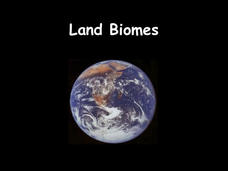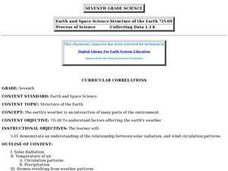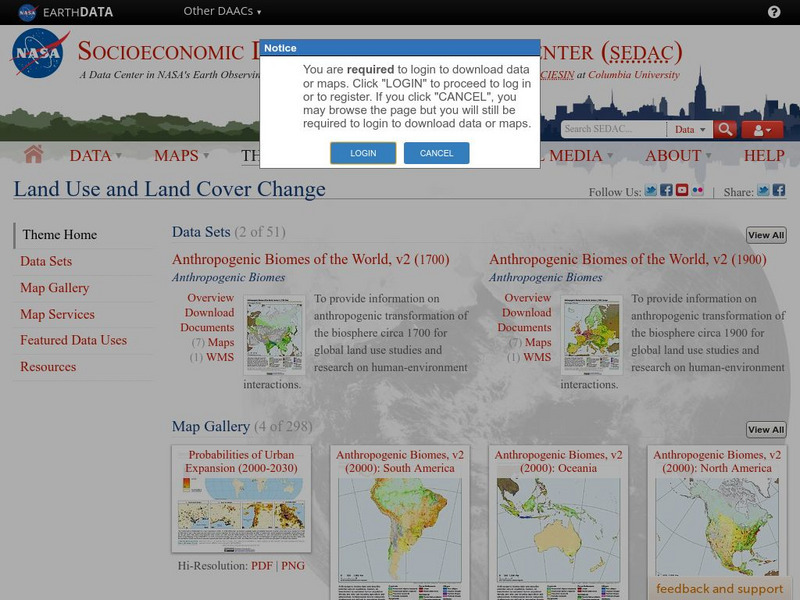Biology Junction
Land Biomes
Biomes share similar climates and ecosystems, despite being separated geographically on the planet. A presentation introduces the six most common land biomes. It focuses on the commonalities in climate, plants, and animals with many...
Curated OER
Biomes and Plant Growth
Seventh graders design four biomes models and plant three types of seeds in them to observe growth. In groups for each type of biome, they predict the seeds' growth in each of the settings. Students follow the conditions on a biome chart...
Curated OER
The Many, Varied, and Unusual Places and Things on Earth
Students discover how energy flows through communities because of the relationship between producers, consumers and decomposers. Examining various ecosystems, they identify the materials that cycle continuously through them. They label...
Port Jefferson School District
Climate Patterns
Young climatologists explore the factors that contribute to a region's climate in this two-part earth science activity. To begin, learners are provided with a map of an imaginary planet and are asked to label global wind and ocean...
Curated OER
Earth's Weather
Seventh graders learn how solar radiation, latitude, and other factors affect weather. They break into six groups and are assigned a topic to research and to present their findings orally.
Columbia University
Nasa: Sedac: Land Use and Land Cover Change
[Free Registration/Login Required] A collection of twenty-six data sets from SEDAC (Socioeconomic Data and Applications Center) that examine land use and how human activities have impacted on land cover. They look at agriculture, loss of...
Other
Minnesota Dnr: Ecological Principles & Land Cover Characteristics
Lists the six attributes used to identify terrestrial and wetlands areas that are important ecologically. These attributes are based on four ecological principles, which are explained.








